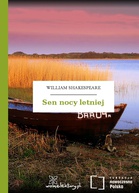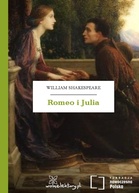- Tytuł:
- Brown, Never Black: Othello on the Nazi Stage
- Autorzy:
- Bassey, Alessandra
- Powiązania:
- https://bibliotekanauki.pl/articles/1033519.pdf
- Data publikacji:
- 2020-12-30
- Wydawca:
- Uniwersytet Łódzki. Wydawnictwo Uniwersytetu Łódzkiego
- Tematy:
-
Othello
Nazi Germany
Nazi Shakespeare
Blackface
Race
Representation
Shakespeare Production
Global Shakespeare
German Shakespeare
Theatre History - Opis:
- This paper examines the ways in which Othello was represented on the Nazi stage. Included in the theatre analyses are Othello productions in Frankfurt in 1935, in Berlin in 1939 and 1944, and in pre-occupation Vienna in 1935. New archival material has been sourced from archives in the aforementioned locations, in order to give detailed insights into the representation of Othello on stage, with a special focus on the makeup that was used on the actors who were playing the titular role. The aim of these analyses is not only to establish what Othello looked like on the Nazi and pre-Nazi stage, but also to examine the Nazis’ relationship with Shakespeare’s Othello within the wider context of their relationship with the Black people who lived in Nazi Germany at the time. In addition, the following pages offer insights into pre-Nazi, Weimar productions of Othello in order to create a more complex and comparative understanding of Nazi Othello productions and the wider theatrical context within which they were produced. In the end, we find out, based on existing evidence, why Othello was brown, and never Black.
- Źródło:
-
Multicultural Shakespeare: Translation, Appropriation and Performance; 2020, 22, 37; 51-65
2083-8530
2300-7605 - Pojawia się w:
- Multicultural Shakespeare: Translation, Appropriation and Performance
- Dostawca treści:
- Biblioteka Nauki
Menu główne
Wyszukiwarka
Treść główna
















